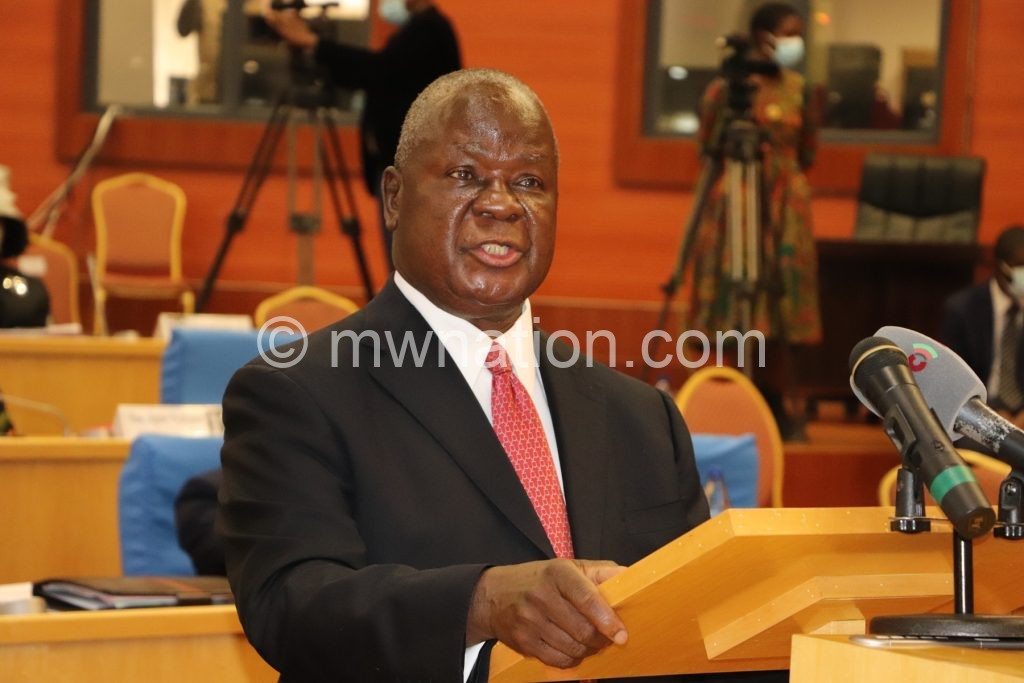Staff audit shows flaws
- 34% of civil servants in personal data mismatch
- Ex-staff, including the deceased, still on payroll
Findings of a personnel audit in the civil service have exposed flaws, including 34 percent of staff having birth dates different from those on their national identity (IDs) cards and retention of the deceased and retirees on pay-roll.
Conducted by the Department of Human Resource Management and Development (DHRMD), the audit covered 208 718 employees in the mainstream civil service and governance institutions which process their salaries through the Human Resource Information Management System (HRMIS)

The report indicates that 34 percent of the employees had different dates of birth in the system from what is on their national IDs.
The audit has also established that some of the civil servants who died way back, retired or resigned are still on government payroll – leading to wastage of public resources.
DHRMD was yet to respond to our questionnaire on measures being proposed to address the situation, but in the 2021/22 Budget Statement, Minister of Finance Felix Mlusu mentioned that government was conducting a personnel audit aimed at bringing efficiency in use of public resources.
The minister said: “Government carried out a headcount for the civil service. As was the case with pension payroll audit in 2020, the civil service personnel audit is aimed at bringing efficiency in use of public resources by ensuring that only bonafide civil servants are paid by the government.
“Field work for this audit was completed and the draft report is expected by the end of June 2021. Government will implement recommendations from this audit as part of its civil service reforms agenda.”

According to the findings, poor management of records and weak internal controls have adversely affected the integrity and accuracy of the HRMIS database, leading to incomplete data relating to human resource management.
Reads the executive summary in part: “The management of records in the public service should be improved through updating the HRMIS and other employment documentation.
“The HRMIS should be redesigned and upgraded to improve its functionalities in terms of security, scalability and software upgrades.”
The weak controls, according to the report, have led to manipulation of payrolls, especially in some government ministries, departments and agencies (MDAs) where figures are inflated or employees who are no longer in the service are maintained on the payroll.
The audit has raised a question that 4 195 employees have a default date of birth of January 1 1975 while a total of 8 322 employees could not be verified in 50 MDAs during the audit.
“We cannot conclusively say that those unverified are ghost workers because there are several factors, not everyone is present during the audit and what we have done is to seek information from concerned MDAs to help verify those, if that fails then we know there is a problem somewhere,” said one official from the DHRMD.
The report has also revealed chaos in payment of honoraria for traditional leaders as in some cases chieftaincy wrangles have led to wrong people claiming honoraria and that there is lack of evidence to ascertain if the right chiefs are paid, especially in circumstances where the ministry responsible pays some traditional leaders by cash and not through bank accounts.
The report has since recommended to Secretary for Local Government to develop guidelines and procedures on honoraria payments for traditional leaders.
A circular dated August 18 2021 from Secretary for Human Resource Management and Development Blessings Chilabade urges all controlling offices and heads of departments to take note of the recommendations of the audit report and gives fresh directives, including submission of staff and vacancy to DHMRD by September 30 2021.
It is not clear if concerned MDAs have complied with this order as DHMRD is yet to respond to our questionnaire.
In September this year, the Anti-Corruption Bureau (ACB) arrested five people, including officials from Salima District Hospital, for allegedly defrauding the public purse K33.5 million.
In a statement, ACB said their investigations revealed that two officials from the district council connived to maintain on the payroll some employees who left service some years ago.
In June this year, The Nation reported how government lost K138 millions of public funds after some officials at Ntchisi District Council allegedly manipulated the payment system and paid themselves as much as K9 million per month since November 2019.
A report prepared by the Department of the Accountant General and submitted to police showed that apart from the two officers getting undeserved huge salaries, the council’s payroll had seven ghost workers also earning millions.





